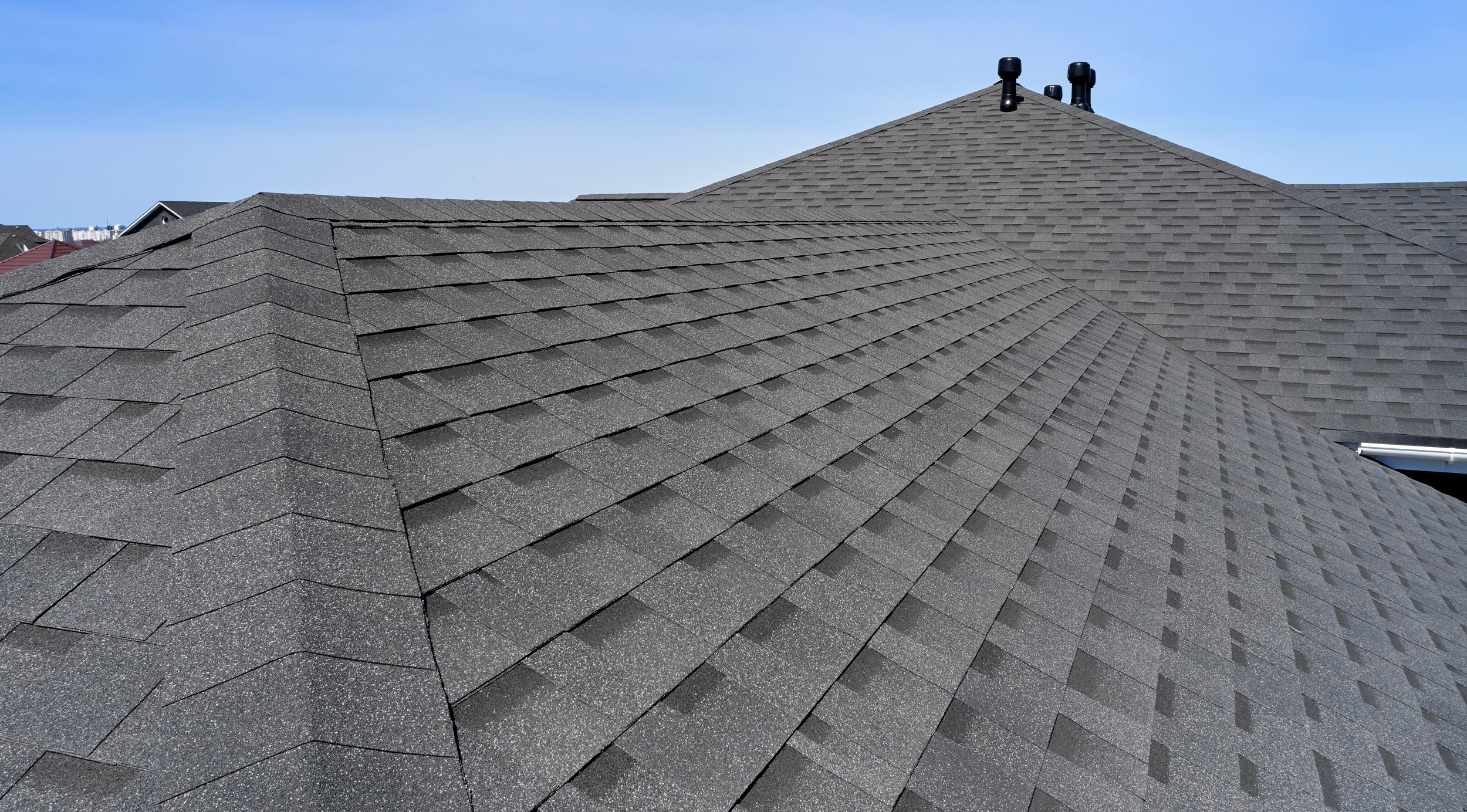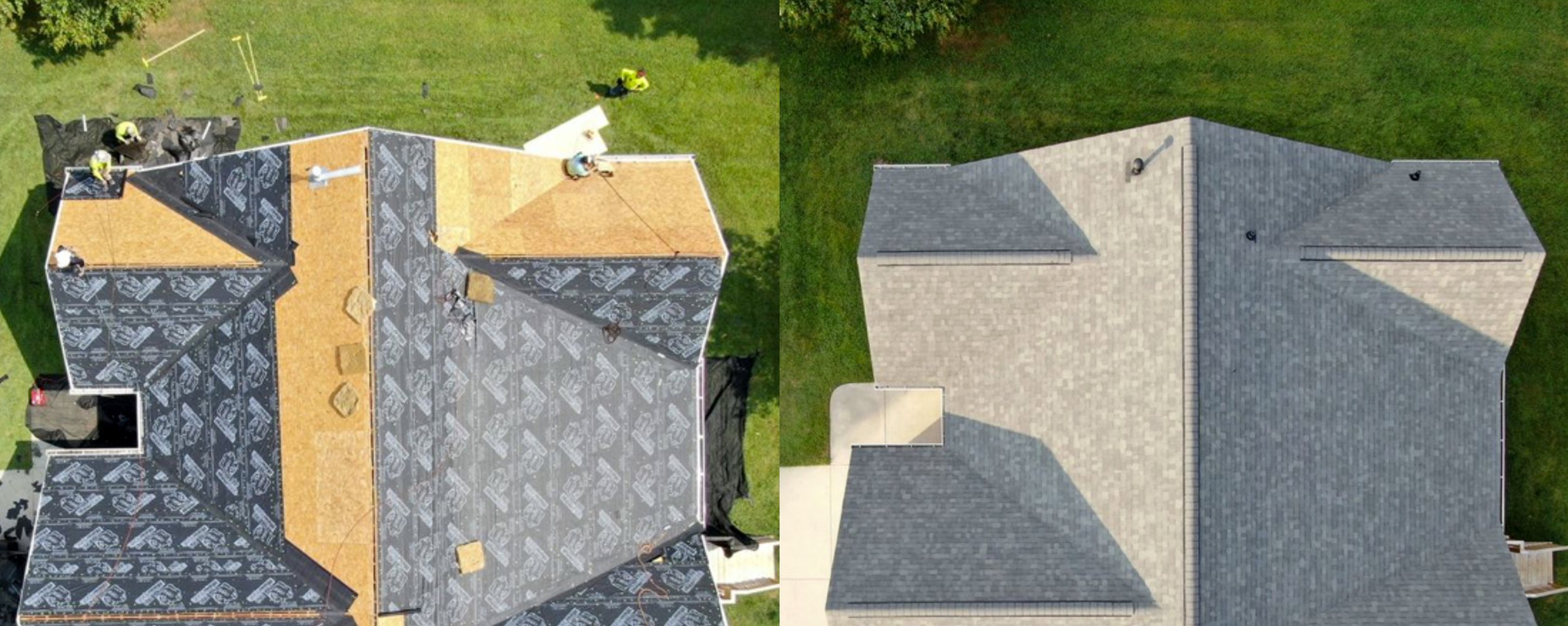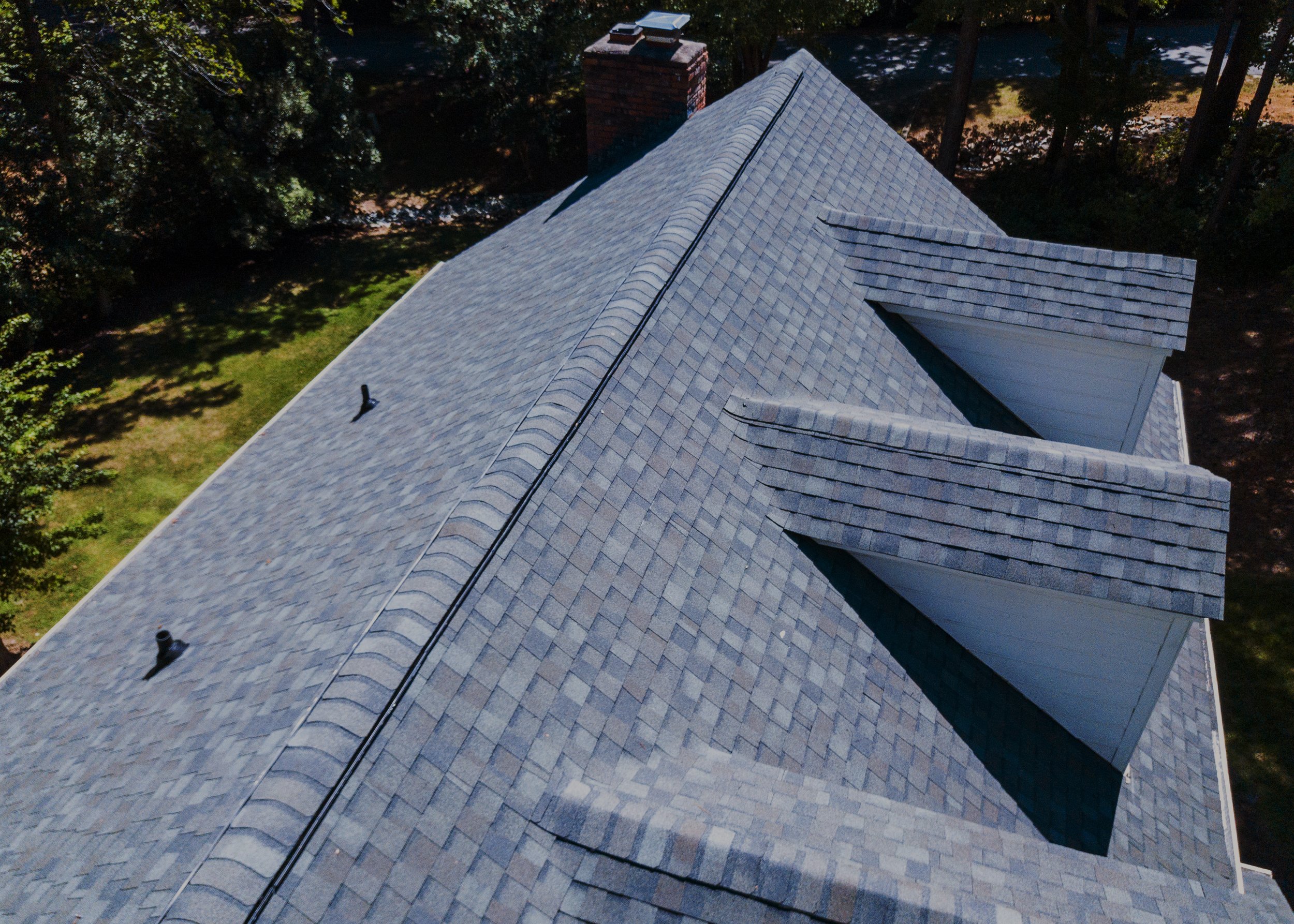
Installing, Maintaining, and Repairing Residential Roofs
We Give You Peace of Mind
We are homeowners like you. Our home is our largest investment that we want to protect.
We founded Weather Roofing, LLC, to utilize our extensive knowledge of the roofing industry to the benefit of our customers by installing and repairing roofs the right way, giving you the peace of mind you deserve.

Our Services

Roof Replacement
Feel Safe Knowing Your Home Is Protected
As a top-rated roofing company in Charlotte, NC, we stand behind our work and the quality of the roofs we install.
We want you and your family to feel safe knowing your home is protected by high-quality roof materials that will last a long time.
Never Go on Your Roof Yourself. Let Us Inspect Your Roof With Our Drone
Safety is our top priority in everything we do.
We use drones to inspect your roof. The high-resolution images from our drones give us valuable insight into the condition of your roof.
We Take Quality Seriously
A roof consists of several critical components beyond just the shingles that affect how long a roof will last.
Hip and ridge shingles, underlayment, ice and water barriers, and starter shingles are crucial in protecting your home.
We use only high-quality, manufacturer-approved roof components that have been thoroughly tested to work effectively as a system, ensuring the longevity of your roof.
Proper Ventilation Extends a Roof’s Lifespan
Proper ventilation significantly extends a roof’s lifespan.
As hot air rises, correctly installed ridge venting reduces the temperature in the attic, preventing high heat from damaging vital roof components, such as underlayment, water barriers, and shingles.
We use specially designed ridge venting components to maximize updraft, reducing heat in your attic and protecting your roof from the inside.

Say Goodbye to Rusty Nails and Cracked Rubber Seals!
They are a major cause of roof leaks.
When the caulking protecting the nails that secure your plumbing vent pipes and roof vents deteriorates, it exposes the nails to heat and moisture, causing rust.
We minimize nail exposure and eliminate the risk of cracked rubber seals by using Perma-Boots around plumbing vent pipes.
Choose the Best Roofing Materials
Our Process
Drone Inspection
Video Explanation of Findings
Video Explanation of Quote
Convenient Digital Signing
Easy In-Portal Payments
“Sign-offs and payment were done electronically and getting on the schedule was easy.”
-Silvia A.
“Rare professionalism, quality/speed of work and care for our landscaping.”
-Coach K.
“Their use of drone technology and the associated damage report made it easy to work with our insurance adjuster and complete our claim.”
-McKenzie C.
“Once we gave the green light, they were out here within days and done very quickly.”
-Luis D.
You See What We See
From inspecting the roof to recommending the best solution, we use drones to give us a clear and detailed view of your roof.
We share these videos and our findings with you. Nothing is hidden. You see what we see.
“The use of technology throughout the process (drone inspection, video inspection and quote explanation) was extremely refreshing.”
-Chad D.
Our Crews Are Highly Trained and Committed to Quality
As a local Charlotte roofer, we are passionate about serving our customers as we would like to be served. Honesty, transparency, and the use of high-quality materials and workmanship are core values to which we are 100% committed at all times.
“Their flashing job is superior to the majority of other roofing companies.”
-Joshua D.
“Their commitment to quality, professionalism, responsiveness, and punctuality sets them apart.”
-Fahret S.
“Their workmanship is impeccable.”
-Tina S.
“Rob and Christina are attentive, knowledgeable, reliable and care for the people they help.”
-Kelly S.
“No hard sell on any products just advised what was available and I made the choices myself without pressure.”
-Cookie F.
We Protect Your Property and Clean Up Before We Leave
As homeowners, we wouldn't want roof debris cluttering our plants and flowerbeds. Our customers shouldn't experience it either.
That's why we install the Catch-All System before removing the old roof shingles. The Catch-All System protects flowerbeds, shrubs, and small trees from falling debris and nails.
After completing your new roof, we take extra time to clean up thoroughly before leaving.
“During installation they used extra care to protect our flowerbeds and keep roof trash and nails out of the beds.”
-McKenzie C.

Our Warranty
As a certified preferred installer of Owens Corning, we purchase a 50-year preferred protection manufacturer limited warranty for every full asphalt-shingle roof replacement at no extra cost to you.

Roof RepairS and Restorations
If We Can Repair Your Roof, We Will Repair It
Given the increasing strength and frequency of storms, roof damage can occur anytime. You might notice a small leak, discolored drywall, or blown-off facia.
Addressing the source of these issues early and replacing broken components quickly will help minimize long-term damage to your home and extend the lifespan of your roof.
We’ve Got You Covered. Emergency Roof Tarping
When your roof sustained damage during a storm, acting quickly can prevent leaks from worsening and save you money.
Professionally tarping the impacted area of the roof can give you valuable time to find a permanent solution and address the issue the right way.
“I was concerned with so many things. We got our quote within 24 hours, we scheduled the repair, and all work was completed the same day.”
-Igor P.
“They found that our leak was not roof-related. We couldn’t be more grateful for Weather Roofing determining the issue instead of just going ahead with unnecessary work and charges.”
-Stephanie G.
“Weather Roofing repaired our damaged roof and matched the existing shingles seamlessly.”
-Anastasia L.
“Rob was communicative and upfront. [...] I felt very safe and confident with them.”
-Alisa G.
We Handle the Paperwork for Your Insurance Claim
We handle insurance claims daily and understand the requirements for correctly submitting them.
“Rob kept me informed [...] and explained the process when I was confused about the insurance claim numbers.”
-Krystin P.
“Rob takes time to prepare a video highlighting the issues and how to move forward with insurance.”
-Jill B.
“Rob was honest, presented us with an accurate quote that didn’t change. Team arrived when promised, was respectful to our property and cleaned up when they were finished.”
-Caterina W.

Roof Maintenance
Catch Roof Issues Early When They Are Still Small
There is never a good time for a leak. However, regular roof maintenance can prevent the nightmare of dealing with sudden leaks and the damage they cause.
Catching potential roof issues early, when they are still minor and the repair is simpler and less costly, can save you from facing larger and more damaging leaks in the future.
All three maintenance plans include our thorough 20-point inspection report, carefully designed to detect potential leaks early. Being proactive allows you to address any concerns before they become major problems, giving you added peace of mind.
Ever wished you had Photos of your roof before a storm?
Imagine how much easier dealing with your home insurance would be if you had photos showing the condition of your roof before it was damaged by hail or strong winds.
All three maintenance plans include storing our drone inspection data, including the video, in our Report Vault. This documentation could be valuable for filing an insurance claim if your roof sustains storm damage later.
Our Maintenance Plans 1)
Essential
Proactive
Peace of Mind
- All maintenance plans are subject to a property inspection.
- According to our Hail Tracker app.
- Emergency Roof Tarping covers a roof area of 40 x 60 feet. Additional charges apply for larger roof areas.
Frequently Asked Questions
-
You can pay all maintenance plans monthly. However, we discount the monthly price when you pay annually in a single payment.
-
We offer three different maintenance contracts depending on the protection you prefer.
Essential: We perform an annual drone roof inspection and provide you with a video inspection report. We also store the video inspection report in our report vault, in case you might need it in the future.
Proactive: In addition to the Essential maintenance plan, we inspect your roof when our Hail Tracker app alerts us that it detected hail in your area. You also get a 10% discount on parts and labor.
Peace of Mind: In addition to the Proactive maintenance plan, we tarp your roof if you experience a roof leak (certain restrictions apply). Your repair also has priority, which can be valuable, when a storm affects entire neighborhoods. You also receive a 15% discount on parts and labor.
-
Please let us know prior to the renewal date, if you want to cancel your maintenance contract.
-
No, you do not need to be home while we inspect your roof with our drone. As soon as we have completed our inspection, you will receive a video inspection report from us that outlines any areas of concern and how to address them.
-
Emergency Roof Tarping is included in our Peace of Mind maintenance plan for a roof area of 40 × 60 feet. If the impacted area is larger, we would charge an additional amount.
-
All maintenance plans are subject to a property inspection.






































